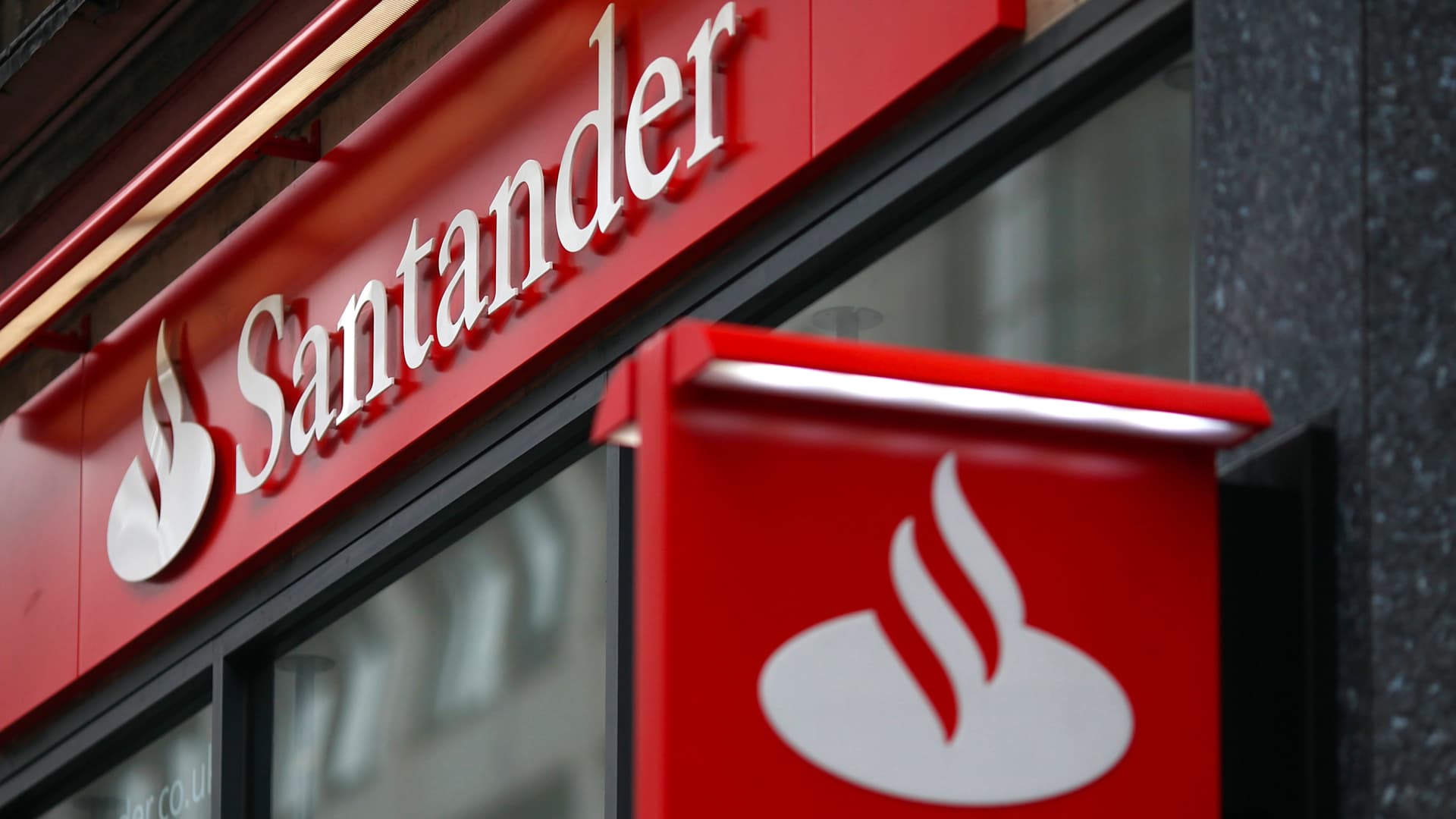
A sign hangs from a branch of Banco Santander in London, U.K., on Wednesday, Feb. 3, 2010.
Simon Dawson | Bloomberg via Getty Images
Banks and other mortgage providers have been battered by plunging demand for loans this year, a consequence of the Federal Reserve’s interest rate hikes.
Some firms will be forced to exit the industry entirely as refinance activity dries up, according to Tim Wennes, CEO of the U.S. division of Santander.
He would know: Santander — a relatively small player in the mortgage market — announced its decision to drop the product in February.
“We were a first mover here and others are now doing the same math and seeing what’s happening with mortgage volumes,” Wennes said in a recent interview. “For many, especially the smaller institutions, the vast majority of mortgage volume is refinance activity, which is drying up and will likely drive a shakeout.”
The mortgage business boomed during the first two years of the pandemic, driven by rock-bottom financing costs and a preference for suburban houses with home offices. The industry posted a record $4.4 trillion in loan volumes last year, including $2.7 trillion in refinance activity, according to mortgage data and analytics provider Black Knight.
But surging interest rates and home prices that have yet to decline have put housing out of reach for many Americans and shut the refinance pipeline for lenders. Rate-based refinances sank 90% through April from last year, according to Black Knight.
‘As good as it gets’
The move by Santander, part of a strategic pivot to focus on higher-return businesses like its auto lending franchise, now seems like a prescient one. Santander, which has about $154 billion in assets and 15,000 U.S. employees, is part of a Madrid-based global bank with operations across Europe and Latin America.
More recently, the largest banks in home loans, JPMorgan Chase and Wells Fargo, have cut mortgage staffing levels to adjust to the lower volumes. And smaller nonbank providers are reportedly scrambling to sell loan servicing rights or even considering merging or partnering with rivals.
“The sector was as good as it gets” last year, said Wennes, a three-decade banking veteran who served at firms including Union Bank, Wells Fargo and Countrywide.
“We looked at the returns through the cycle, saw where we were headed with higher interest rates, and made the decision to exit,” he said.
Others to follow?
While banks used to dominate the American mortgage business, they have played a diminished role since the 2008 financial crisis in which home loans played a central role. Instead, nonbank players like Rocket Mortgage have soaked up market share, less encumbered by regulations that fall more heavily on large banks.
Out of the top ten mortgage providers by loan volume, only three are traditional banks: Wells Fargo, JPMorgan and Bank of America.
The rest are newer players with names like United Wholesale Mortgage and Freedom Mortgage. Many of the firms took advantage of the pandemic boom to go public.Their shares are now deeply underwater, which could spark consolidation in the sector.
Complicating matters, banks have to plow money into technology platforms to streamline the document-intensive application process to keep up with customer expectations.
And firms including JPMorgan have said that increasingly onerous capital rules will force it to purge mortgages from its balance sheet, making the business less attractive.
The dynamic could have some banks deciding to offer mortgages via partners, which is what Santander now does; it lists Rocket Mortgage on its website.
“Banks will ultimately need to ask themselves if they consider this a core product they are offering,” Wennes said.







